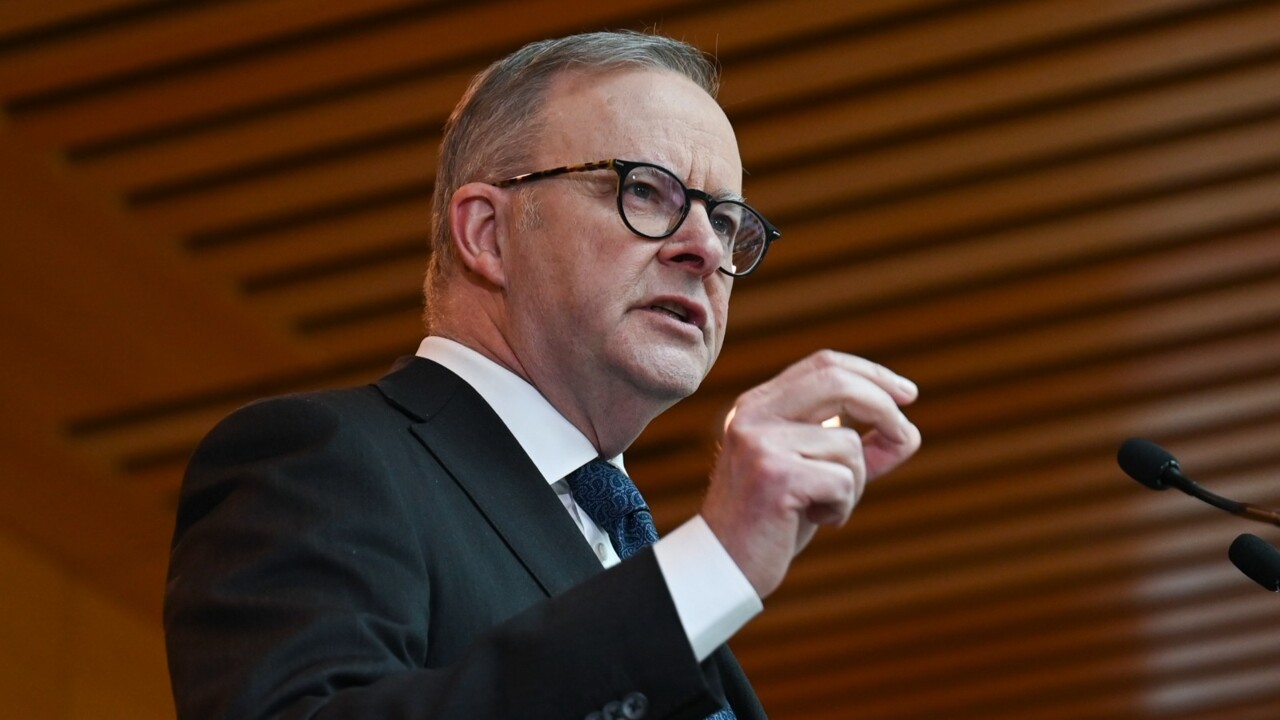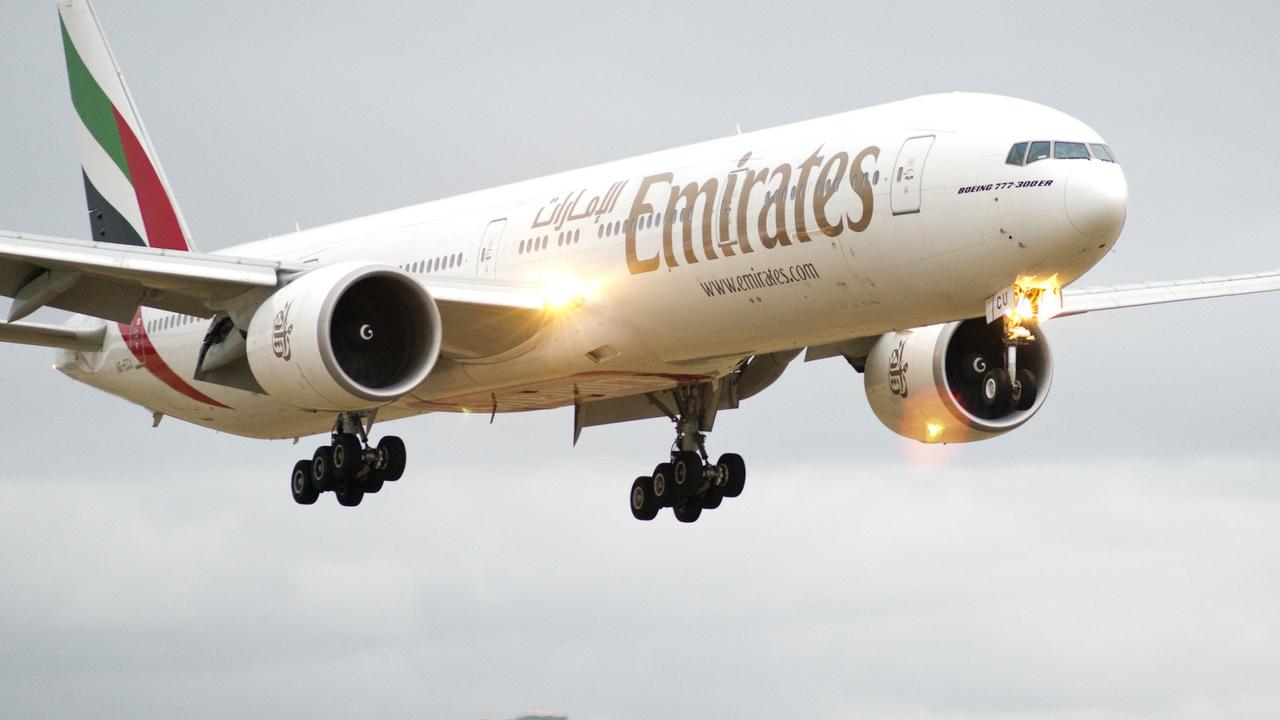Qantas investors question Alan Joyce’s early exit and $24m golden handshake
Qantas’ major superannuation investors have warned to the board Alan Joyce’s early exit comes with questions.

Qantas’ major superannuation investors are questioning former CEO Alan Joyce’s reported $24 million golden handshake after his early exit from the company this week.
Mr Joyce walked away from the top job on Tuesday two months early so the airline could “move ahead with its renewal” under new management.
The unexpected move came after a tumultuous couple of weeks, including the consumer watchdog seeking to penalise the airline by more than $250 million for allegedly selling sale tickets for already-cancelled flights.
Australian Council of Superannuation Investors chief executive Louise Davidson said Mr Joyce’s early exit had “not erased the issues that concern us”, The Australian reported.
“We still expect the board to carefully consider any executive bonuses in light of the issues the company is facing,” Ms Davidson said.
“The question investors will ask is, ‘how does the board justify any bonus outcomes given the legacy issues Mr Joyce is leaving behind?’”
Ms Davidson said the council also wanted to hear of the board’s plan to repair Qantas’ reputation.

ACSI represents major superannuation funds, which the Australian Financial Review reported, between them and other public sector investors including the Future Fund control more than 20 per cent of Qantas’ shares.
Vas Kolesnikoff, who is head of Australian research at Institutional Shareholder Services, said there needed to be more transparency on Mr Joyce’s “golden handshake” and his sale of almost $17 million worth of shares in June, according to The Australian.
ISS provides proxy voting advice to the airline’s major investors such as State Street, BlackRock and pension and life insurance funds.
“I would not think the board will want to wait until the annual general meeting to explain some of these issues,” Mr Kolesnikoff said.
“There is a lot more water that needs to flow under the bridge in relation to these issues. Some of these decisions have not made a huge amount of sense and there needs to be more transparency.”

Mr Joyce sold most of his 2.5 million Qantas shares – which he had accumulated since 2012 after becoming chief executive – on June 1, when they were trading at $6.74.
He pocketed just shy of $16.87 million from the sale, and was left with about 229,000 shares in the company.
In August, the outgoing CEO was asked to explain why he sold those shares and he told reporters he had to sell for a “personal purchase”.
“I still have a huge amount of shares there I hold but I had to sell shares for a personal purchase I was making,” he said.
“It was the timing to do it given the market update, all information was disclosed. But I’m still a very large shareholder in Qantas and I more than meet the minimum level that the CEO is expected to hold by quite a multiple amount.”
The timing of his cash out was spot on, it has been observed, because Qantas’ share price has taken a nosedive in the four months since the sale.
According to Market Index analysis, Qantas’ stock price dropped 15 per cent since Mr Joyce sold his shares in June.

Qantas’ plan to repair reputation
New Qantas CEO Vanessa Hudson says she is putting customers first as she embarks on the challenge of repairing the airline’s reputation.
“We have spent a century safely carrying Australians to all parts of the globe and bringing the world to our shore,” Ms Hudson said in a video message to staff on Tuesday.
“We’ve overcome many challenges in the process and right now it feels like we’re chasing another challenging time.”
“We know that post-Covid we haven’t always delivered to what our customers expect, but we are listening and we hear what they are saying. As a company our job is to get the balance right between looking after our customers, you our people, and the business itself.
“Right now achieving this balance must first start with our customers and that’s what we will be focused on with our new management team.”

Qantas made a big move to prove it was “listening” to disgruntled customers and public backlash last week by scrapping the expiry date on Covid travel credits.
Four days before the Qantas Group posted its full-year results (a 2.47 billion profit) on August 24, class action law firm Echo Law announced it had lodged proceedings against Qantas in the federal court over the airline’s handling of credits and refunds.
The following week, Mr Joyce faced intense questioning over the credits at a hearing for an Australian Senate inquiry into the cost of living, which he was issued a summons to appear at.
It was revealed at the hearing that the value of unredeemed credits Mr Joyce quoted the week prior ($370 million) when discussing the full-year results did not include Jetstar credits or international customers.
During questioning, Jetstar CEO Stephanie Tully, who also appeared at the hearing, revealed there were about $100 million in unredeemed Jetstar travel credits.
It meant there were at least $470 million of credits unredeemed across the Qantas Group due to expire at the end of this year, rather than the $370 million previously thought.
Four days after the hearing, Qantas and Jetstar scrapped the expiry date on the Covid travel credits.
Customers with a Qantas Covid credit can now request a cash refund at any point in the future, and customers with a Jetstar Covid voucher can use it for travel indefinitely.
“We’re doing this because we’ve listened,” Mr Joyce said in a video message.
“We know the credit system was not as smooth as it should have been and while we’ve improved it recently, and extended the expiry date several times, people lost faith in the process. We hope this helps change that.”






